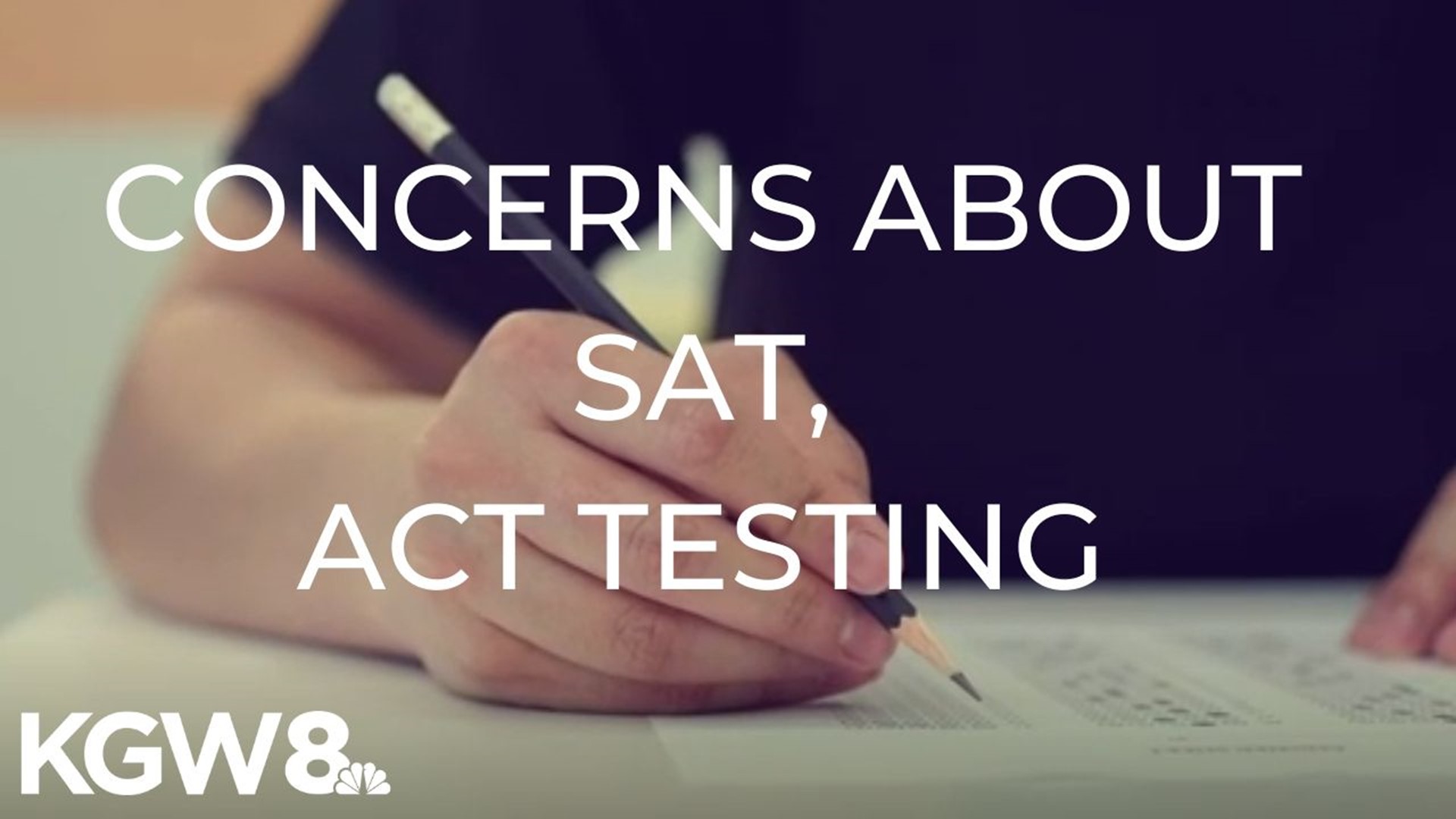PORTLAND, Ore. — The COVID-19 pandemic has affected all of us in one way or another. But for high school students who are thinking about their college plans, the coronavirus has added another layer of anxiety.
After the coronavirus forced the cancellation of SAT and ACT tests, Armeen Aminzadeh is worried about about what the lack of test scores might mean for his chances of getting into schools across the country.
He’s a high school junior in San Jose, California. He’s not alone in his concerns.
“All my friends got their test canceled so they’re all extremely nervous too,” said Aminzadeh.
But fortunately for him his first pick for college, the University of Oregon, won’t be requiring applicants submit their SAT or ACT test scores. He’s hoping schools across the country follow suit.
In an effort to help other high school students, he’s even created his own website to keep track of colleges that have decided to go “test-optional.” Aminzadeh said it's become a popular resource for students in his area.
"It's reached about 8,000 views in this first week," he said.
The deal with public universities in Oregon
Anyone looking to apply to any of the seven public universities in Oregon won’t have to submit their SAT or ACT test scores either, if they don’t want to.
“On March 25 we announced that Oregon State University would no longer require undergraduate applicants to submit standardized test scores,” said Steve Clark, Vice President for university relations at OSU.
Clark said the three largest institutions in Oregon: Oregon State University, the University of Oregon, and Portland State University announced they would join the four other public regional universities in Oregon. The state's regional universities include Western Oregon University in Monmouth, Southern Oregon University in Ashland, Oregon Tech in Klamath Falls which also has a campus in Wilsonville, and Eastern Oregon University in La Grande.
“For the last several years, Oregon’s regional universities have not required testing,” said Clark.
He said the decision to go “test-optional” is unrelated to the COVID-19 pandemic. It’s been in the works for a while now. Clark said more than 1,000 four-year universities across the country have decided to take a test-optional approach. The idea behind the move is to give more students the opportunity to access to higher education in Oregon.
“Some students don’t test well. They may have had very good to extraordinary success in high school, but when they get to a test, it doesn’t work for them,” Clark said.
“So this gives them the option to decide.”
The decision to not require standardized test scores in the application starts for students enrolling in the fall of 2021.
A word of advice from a college application expert
KGW also spoke to Neha Gupta, founder of a company called College Shortcuts. She had a word of advice for college applicants: It’s not going to be about your stats, it’s going to be about your story. Gupta said that could make or break an application.

